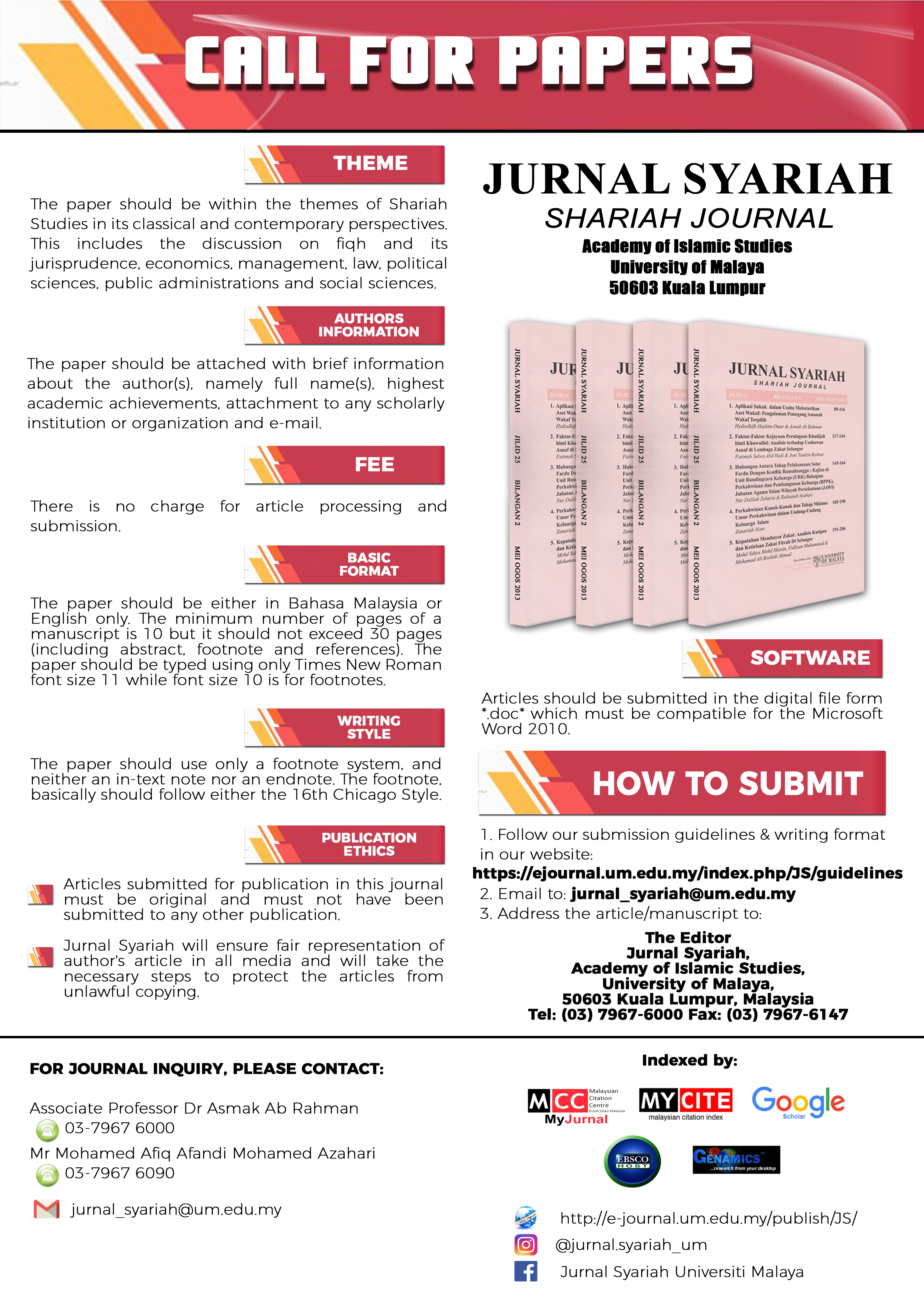UNDANG-UNDANG AIR ISLAM: ANALISIS KOMPARATIF TERHADAP ASPEK KUALITI AIR
Islamic Law of Water: Comparative Analysis of The Quality Aspects of Water
Keywords:
Water quality index, Department of Environment, water pollution, Islamic hygienical jurisprudence.Abstract
This paper explores the Islamic and scientific approaches in determining water quality classifications. It elaborates on the water classes, index ranges and parameters stipulated in the Water Quality Index-Department of the Environment (WQI-DOE) in the context of its strategies for controlling water pollution from point sources and provides a comparative analysiSWTh the taharah-najasah standards that are embedded in Islamic Hygienical Jurisprudence. Based on these research findings, the approach of Islamic Law is still relevant and applicable because of its universal and dynamic values. There is also compliance between the Islamic Law (conventional measurement) and WQI-DOE (scientific measurement) in standardizing and gauging water quality. The similarities can be clearly seen in both water quality parameters, especially concerning the aspects of acceptability (taste, odour and appearance).
Downloads
Downloads
Published
How to Cite
Issue
Section
License
COPYRIGHT: All rights reserved. Not allowed to be reproduced any part of articles and contents of this journal in any form or by any way, whether electronic, mechanical, photocopying, recording or otherwise without permission in writing from the Chief Editor, Jurnal Syariah.



















